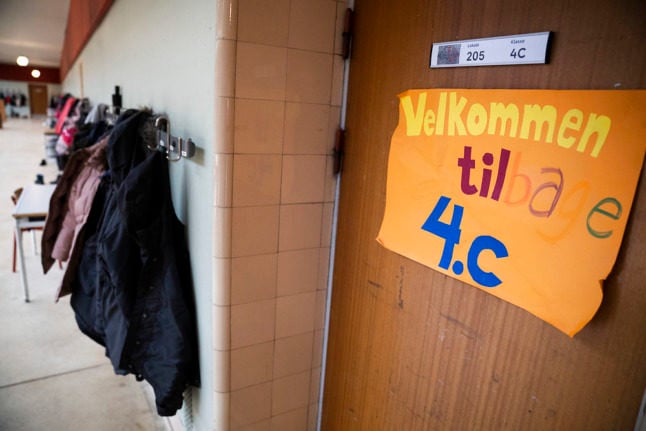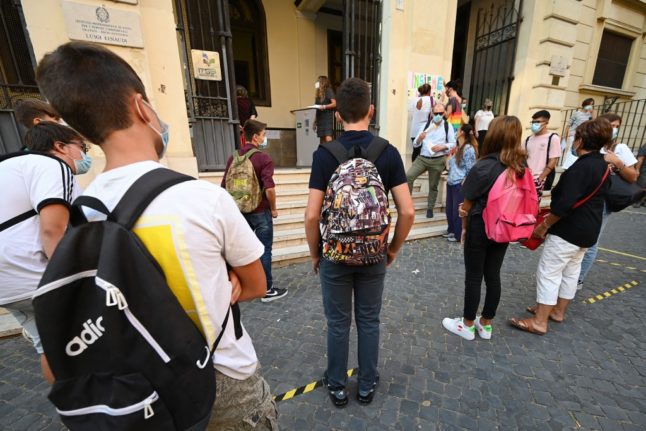Children who have come into close contact with a person confirmed to be infected with Covid-19 should no longer be sent home from school to isolate, according to a number of experts and politicians.
“People who are infected should go home of course, but it is not appropriate or proportional for us to send healthy children home,” Conservative party health spokesperson Per Larsen told newspaper Berlingske.
“If anyone has suffered due to Covid-19 restrictions then it’s children who have been sent home,” Larsen added.
READ ALSO: Danes felt ‘least impacted’ of Europeans during Covid-19 pandemic
Health spokespeople from both the Liberal and Social Liberal parties said they shared that stance, Berlingske reported. The parties hope to bring the government on board over the issue.
Sending children home from school after recent close contact with a Covid-19 case may no longer be a necessary measure against the pandemic, according to some experts.
That is because the infectious Delta variant is likely to result in most children under the age of 12 (who are not eligible for vaccination) being infected this year, according to comments given to Berlingske by Nils Strandberg Pedersen, former director of the national infectious agency State Serum Institute.
Denmark is set to change the official status of Covid-19 on September 10th, meaning it will no longer be classed as a “critical threat to society”, instead being rated an infectious disease which is “dangerous to public health”.
This means the government will lose the legal powers to impose bans on people gathering, demands for Covid-19 passes, and demands for face masks.
But the Health Ministry told Berlingske it would continue to follow Danish Health Authority recommendations on close contacts at schools.



 Please whitelist us to continue reading.
Please whitelist us to continue reading.
Member comments